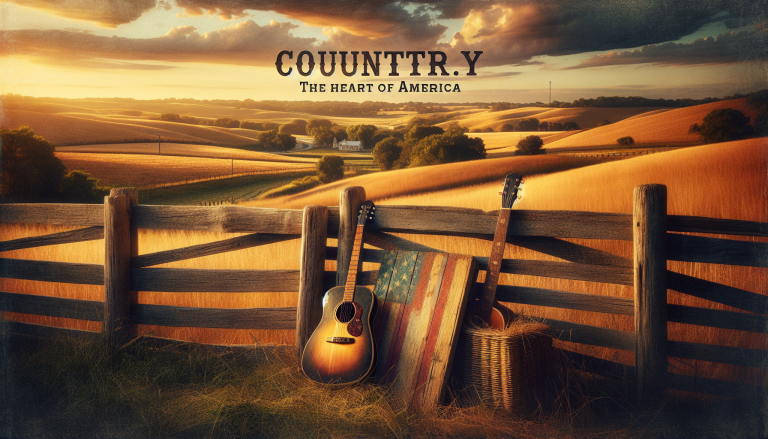Country Music: The Heartbeat of American Storytelling
Roots of a Timeless Tradition
Country music is more than just a genre—it’s a profound narrative of American life, emotions, and experiences. Emerging from the Appalachian Mountains and rural Southern landscapes, this uniquely American musical form has captured the hearts of millions, weaving stories of love, loss, hardship, and hope through its melodic storytelling.
The origins of country music can be traced back to the early 20th century, rooted in folk traditions brought by European immigrants and African American musical styles. Blending elements of blues, gospel, and traditional ballads, country music began to take shape in the 1920s, with artists like Jimmie Rodgers and the Carter Family becoming pioneers of the genre.
The Soundtrack of Rural America
At its core, country music is a genre of raw emotion and authenticity. It speaks directly to the human experience, using simple yet powerful instrumentation typically featuring acoustic guitar, fiddle, banjo, and steel guitar. The music tells stories that resonate with everyday people—tales of working-class struggles, romantic relationships, family bonds, and the complexities of American life.
“Country music is three chords and the truth,” legendary songwriter Harlan Howard once said, capturing the essence of the genre’s straightforward yet profound approach to musical storytelling.
Legendary Artists Who Shaped the Sound
Throughout its evolution, country music has been defined by remarkable artists who pushed boundaries and expanded the genre’s reach. Hank Williams brought a raw, emotional quality to country music in the 1940s and 1950s, while Johnny Cash became an iconic figure who transcended musical boundaries. Patsy Cline revolutionized the genre with her powerful vocals and emotional depth, paving the way for future female artists.

The 1970s saw the rise of outlaw country, with Willie Nelson and Waylon Jennings challenging the traditional Nashville sound. Their rebellious spirit and authentic storytelling resonated with audiences seeking music that broke conventional rules.
Modern Innovations and Global Impact
Contemporary country music has continued to evolve, incorporating elements of pop, rock, and other genres. Artists like Garth Brooks in the 1990s brought country music to massive mainstream audiences, selling out stadiums and breaking sales records. More recent stars like Carrie Underwood, Keith Urban, and Luke Bryan have further expanded the genre’s appeal, blending traditional country sounds with modern production techniques.
The genre has also become increasingly diverse, with artists like Darius Rucker and Kane Brown challenging traditional representations and bringing new perspectives to country music. This evolution reflects the changing landscape of American culture and the genre’s ability to adapt while maintaining its core storytelling tradition.
Cultural Significance and Lasting Legacy
Country music remains a powerful vehicle for expressing American identity. It celebrates working-class values, resilience, and emotional authenticity. The music often explores themes of patriotism, family, and personal struggle, creating a profound connection with listeners across generations and backgrounds.
From small-town honky-tonks to massive arena tours, country music continues to be a vibrant and dynamic form of artistic expression. Its influence extends far beyond musical boundaries, serving as a cultural touchstone that reflects the hopes, dreams, and challenges of American life.
Instruments That Tell a Story
The instrumental palette of country music is as distinctive as its lyrical content. The twang of a steel guitar, the rhythmic strum of an acoustic guitar, and the mournful cry of a fiddle are instantly recognizable. These instruments aren’t just tools for making music—they’re storytellers in their own right, capable of expressing emotions too complex for words.
Modern country artists continue to honor these traditional instruments while also experimenting with contemporary sounds. Synthesizers, electric guitars, and production techniques borrowed from pop and rock have found their way into country music, creating a rich and evolving sonic landscape.
A Living, Breathing Musical Tradition
Country music represents more than just a genre of music—it’s a living narrative of American experience. From its humble beginnings in rural communities to its current status as a global musical phenomenon, country music continues to evolve while staying true to its roots of honest storytelling and emotional depth.
As the music continues to change and grow, one thing remains constant: the ability to connect with listeners on a deeply personal level. Whether it’s a song about heartbreak, hope, or the simple joys of life, country music speaks to the universal human experience in a way few other genres can.
The story of country music is ultimately the story of America itself—complex, diverse, resilient, and always ready to share another heartfelt tale through the power of music.